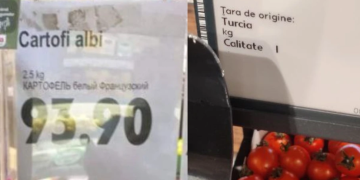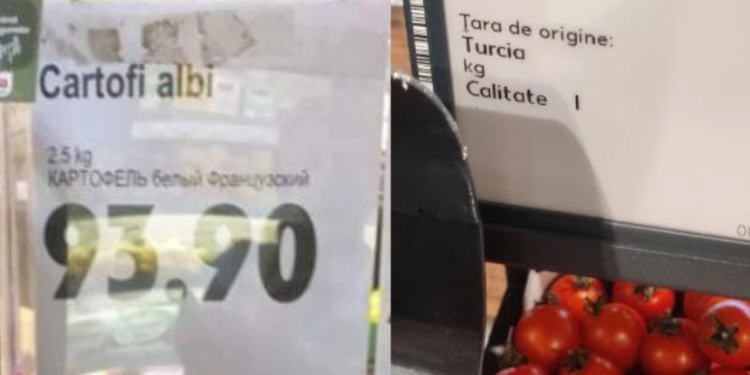#Moldovaagriculture #foodimports #domesticproduce #agriculturalself-sufficiency #EUintegration #supportinglocalfarmers #sustainableagriculture #foodsecurity #economicsustainability
The Import-Reliance Reality
Moldova, often referred to as an agrarian powerhouse, is grappling with a stark paradox – a significant portion of the food on its tables is imported. From French potatoes to Chinese garlic, Turkish dill to Greek grapes, the nation’s supermarkets showcase an array of foreign produce. This raises a fundamental question: how can Moldova claim to be an agrarian country when it struggles to provide its citizens with homegrown food?
The numbers paint a concerning picture. According to recent data from the National Bureau of Statistics of Moldova, in 2022, the country imported over 60% of its food products, worth billions of dollars. These imports not only strain the national economy but also undermine the potential for growth within the domestic agricultural sector.
The Call for Change
Within the Moldovan online community, there is a growing call to action. Many consumers are advocating for a shift in purchasing behavior, urging their fellow citizens to scrutinize labels and opt for Moldovan products over imports. They argue that by buying local, consumers can support domestic producers and reduce the grip of multinational corporations that dominate the import market.
The internet is abuzz with recommendations:
Choose Local Over Imported: Prioritize Moldovan products when shopping for groceries. By doing so, consumers can contribute to the growth of the domestic agricultural sector.
Shop at Local Markets or in Rural Areas: Purchasing fruits and vegetables from local markets or rural areas helps support small-scale farmers and communities, promoting economic sustainability.
A Lesson from the EU
Moldova can take a cue from European Union (EU) member countries. Many of them, upon joining the EU, faced restrictions on producing and exporting certain products due to existing EU market saturation. For instance, Greece was prohibited from producing olive oil, as Italy and Spain had already established dominance in this sector. Poland had to cease its shipbuilding industry because Germany had sufficient shipyards.
This EU experience serves as a cautionary tale for Moldova. As the nation continues its journey towards European integration, it must be prepared for potential limitations on producing and exporting specific agricultural products. If, for instance, Moldova’s grape production is overshadowed by Greece, or its wine competes with European giants, the nation’s agricultural landscape could drastically change.
Securing Moldova’s Agricultural Future
Moldova’s path to agricultural self-sufficiency is a challenging one, but it’s a journey that the nation must undertake. Relying heavily on food imports not only threatens the country’s economic stability but also compromises its identity as an agricultural powerhouse.
Farmers, agronomists, agricultural engineers, farm owners, and agricultural scientists have a crucial role to play. By embracing innovation, sustainable practices, and collaborative efforts, Moldova can reduce its dependence on imported food products. This will not only ensure food security but also bolster the nation’s agricultural sector, creating a more resilient and prosperous future.































